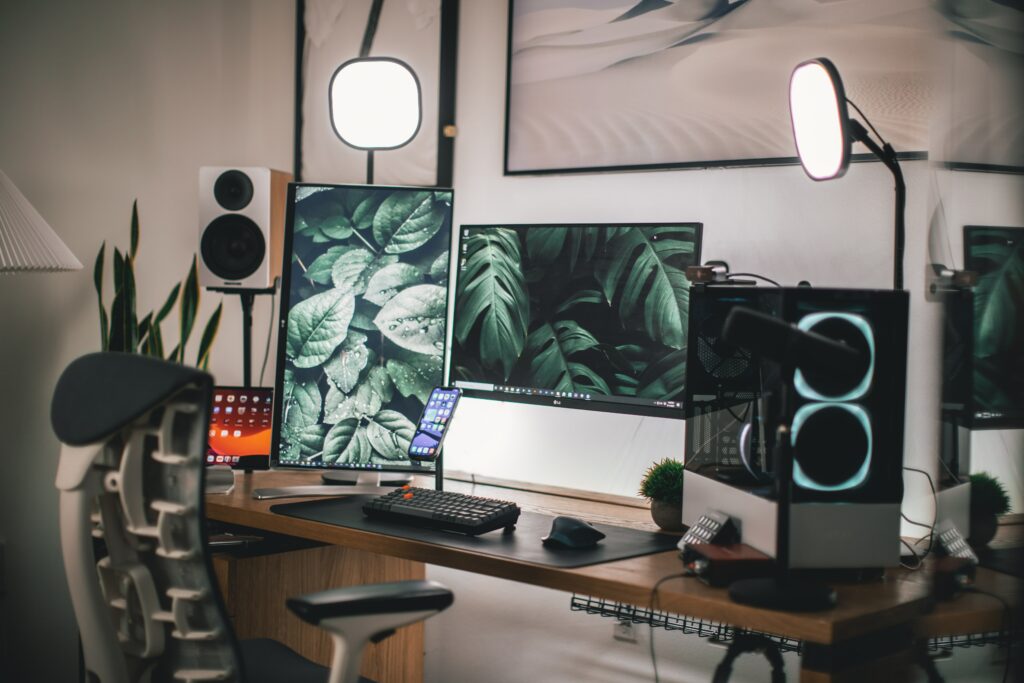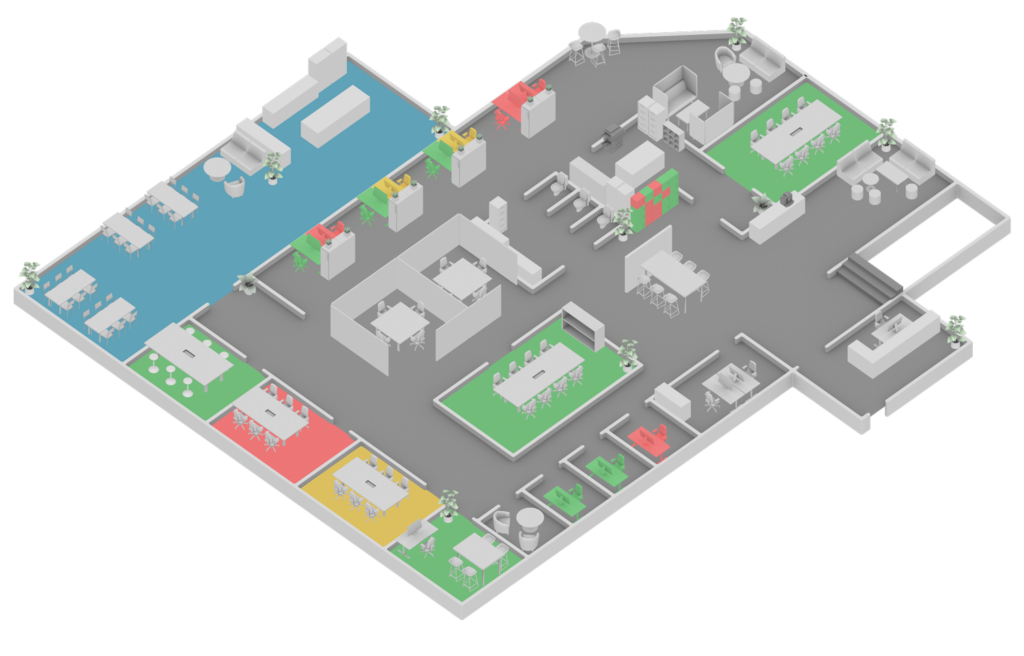Insights
The rise of individualized workplaces
As Covid-19 persists, employees are increasingly abandoning the office, prompting managers to seek solutions for the new hybrid work model and how to entice workers back. However, employees are questioning the necessity of returning to the office as their productivity remains high while working from home, improving their well-being and simplifying daily tasks.
There is an increasing need to individually adjust the work space
To get people back to the office, some organizations are applying rules and regulations that force people to go to the office – at least on certain days. However, if an organization wants to get people back to the office without the use of regulations, there are several ways to attract them to come back.
One strategy is to adjust the office environment to better fit each person’s individual needs. An increasing number of people are starting to understand the importance of individualizing and personalizing the office space, according to Ulrica Magnusson, Head of Workplace Advisory at Colliers.
“Sitting in high-level management meetings to discuss what’s best for everyone is no longer effective – one needs to zoom in more on the individual. Working in the same location doesn’t imply identical needs or circumstances. We must start tending to the needs of each person, not just the team or the organization.”
Work moved home during the pandemic…
The home office is perhaps the most personally adjusted workspace many of us can find. Not only is the space decorated according to personal preference, but you can also pour that perfect cup of coffee any time, play your favorite music playlist and prepare fresh meals each day. Yes, many of us have grown to enjoy this new way of working – where one’s personal needs are met to a much greater extent compared to the office environment.

Someone who invested quite a lot into building an individually adjusted home office during the pandemic is Asif Mithawala, Senior Cloud Infrastructure Architect at one of the largest and most sought-after tech companies in the world. To give a perspective from a tech top talent, we interviewed Asif on his thoughts regarding the hybrid work life.
“I have the best workflow at home, for sure. It’s so quick for me to move into a highly focused work mode when I slide into my home office, because it is so seamless! I know that the table is adjusted exactly to my height. I know what’s to the left and to the right of me. I know the lighting will be perfect and I can control the surrounding sounds completely.”
Asif’s home office is not only adjusted to his personal preference, but also has smart functions.

He also talks about the agony of observing his productivity decrease when he enters the office to work.
“I come into the office for the social part sometimes, but I really don’t enjoy how much my productivity goes down during those days. Also, I have a lot of digital meetings, and digital meetings and open office landscapes are not a good match”.
And I’m clearly not alone to prefer a personal space;
"All the time I see people compete to come into the office early enough to be able to book a meeting room and sit there all day."
Asif’s experience is indeed shared by others; a Gensler survey from 2022 shows that the workplace is more effective for working with others in person, but effectiveness for individual and virtual work in the office continues to decline since the start of the study in 2008 [1].
He concludes, “I honestly think the classic offices need to make a comeback to get people back to the office, at least in some shape or form. I would go into the office more often if I had my own personal space where I could really focus”.
… Is it now time to move the home to the office?
Have people become so comfortable at home during the pandemic that employers now need to incorporate each person’s experience of the home office into the organizations space? Clearly, a shift like that would be too expensive for many organizations to manage.
Furthermore, according to a McKinsey study from 2022, 57% of workers say they prefer a hybrid work model and 32% say they prefer working fully remote [2] – which may seem daunting for employers who are willing to invest in the office to get people back in there.
Nevertheless, if one really wants to attract people back to the office, it certainly is a good idea to consider how one can better personalize each employee’s office experience with words such as comfortable, seamless and focus friendly as guiding stars.
ROL Intelligent Office
Experience a better way of managing your workplace with our integrated software platform, designed to greatly improve employee experience and support data-driven decision making in a hybrid working environment.
Booking resources
Enhance team collaboration by making it easy to book desks and meeting rooms with the suitable tools.
Planning tools
Customize your work schedule to fit your needs and enhance task prioritization, productivity, and work-life balance.



